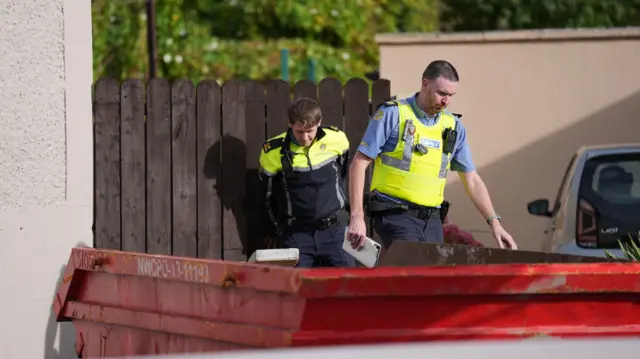On September 17, 2025, the world watched as Christian Brückner, the prime suspect in the disappearance of Madeleine McCann, walked free from a German prison after serving a seven-year sentence for an unrelated crime. His release has reignited global interest in one of the most high-profile missing persons cases in history. Now, British authorities are exploring the possibility of extraditing Brückner to the UK for a potential trial, a development that could bring new hope—or further heartbreak—to Madeleine’s family and the millions who have followed this case for nearly two decades. This article delves into the complexities of the extradition process, the history of the McCann case, and what this latest twist means for justice.
The Madeleine McCann Case: A Heartbreaking Mystery
On May 3, 2007, three-year-old Madeleine McCann vanished from her family’s holiday apartment in Praia da Luz, Portugal. Her disappearance sparked a global media frenzy and an international investigation that continues to this day. The McCann family’s pain, coupled with the mystery of what happened to Madeleine, has kept this case in the public eye for 18 years.
A Night That Changed Everything
The McCanns—Kate and Gerry, both doctors from Leicestershire, UK—were on holiday with their three children and a group of friends. That evening, they took turns checking on their sleeping children while dining at a nearby restaurant. At 10 p.m., Kate discovered Madeleine missing from her bed, her absence a gut-wrenching shock that would alter their lives forever.
Early Investigation and Public Scrutiny
The initial Portuguese investigation focused heavily on Kate and Gerry McCann, a move that drew widespread criticism. They were eventually cleared, but the early missteps hindered progress. By 2013, the case was officially closed in Portugal, though it remained open for further investigation.
Who is Christian Brückner?
Christian Brückner, a 48-year-old German national, emerged as the prime suspect in Madeleine’s disappearance in June 2020. His criminal history and proximity to the crime scene have made him a focal point of the investigation, yet no charges have been filed in connection to Madeleine’s case.
A Troubled Past
Brückner has a long history of violent crimes, including a 2019 conviction for the rape of a 72-year-old American woman in Praia da Luz, the same resort town where Madeleine disappeared. Described by German prosecutors as “fundamentally dangerous,” his record includes sexual assaults, burglaries, and drug trafficking.
Links to the McCann Case
German authorities believe Brückner is responsible for Madeleine’s disappearance, citing cell phone data placing him near the resort on the evening she vanished. Witnesses have also claimed he made incriminating statements, though he denies any involvement.
Why is the UK Exploring Extradition?
The UK’s interest in extraditing Brückner stems from the possibility of trying him for Madeleine’s disappearance, even though the alleged crime occurred in Portugal. British law allows prosecution of serious crimes involving UK citizens abroad under specific circumstances, and Madeleine’s British citizenship makes this a viable option.
Legal Grounds for Extradition
Extradition is a complex process governed by international treaties and domestic laws. The UK’s consideration hinges on whether sufficient evidence exists to charge Brückner and whether a trial in the UK would serve justice more effectively than in Germany or Portugal.
Challenges in the Extradition Process
Extraditing Brückner is not straightforward. He was released from prison with strict conditions, including a GPS ankle tag and regular probation check-ins, but his lawyer has indicated he may flee to a country without an extradition treaty with the UK or EU. This adds urgency to the process.
The Extradition Process: How It Works
Extradition between the UK and Germany operates under the European Arrest Warrant (EAW) framework, even post-Brexit, thanks to the UK-EU Trade and Cooperation Agreement. However, the process is fraught with legal and logistical hurdles.
Steps in the Extradition Process
- Request Submission: The UK must issue a formal extradition request, supported by evidence sufficient to charge Brückner.
- Judicial Review: A German court will assess the request, ensuring it meets legal standards and respects Brückner’s rights.
- Decision and Appeal: If approved, Brückner can appeal, potentially delaying the process for months.
- Transfer: If all appeals fail, Brückner would be transferred to UK custody for trial.
Potential Obstacles
The main challenge is evidence. As Met Police chief Mark Rowley noted, “You need enough evidence to charge before you can extradite.” Without concrete proof linking Brückner to Madeleine’s disappearance, the request could be denied.
Timeline of the Madeleine McCann Case
To understand the current developments, it’s helpful to revisit the key moments in this enduring mystery.
| Date | Event |
|---|---|
| May 3, 2007 | Madeleine McCann disappears from her family’s holiday apartment in Praia da Luz. |
| 2007–2008 | Portuguese police focus on Kate and Gerry McCann, later clearing them. |
| 2013 | Portugal officially closes the case, but investigations continue. |
| June 2020 | German authorities name Christian Brückner as the prime suspect. |
| April 2022 | Portuguese prosecutors formally designate Brückner as a suspect. |
| September 17, 2025 | Brückner is released from German prison, prompting UK extradition talks. |
Source: Adapted from multiple reports, including and.
Why Brückner’s Release Raises Concerns
Brückner’s release has sparked alarm among investigators and the public. A senior British detective warned, “We should be very worried. He is a very dangerous man.” His history of violent crimes and the fear he may flee have intensified efforts to keep him under surveillance.
Conditions of Release
- GPS Ankle Tag: Brückner is monitored 24/7 to track his movements.
- Passport Confiscation: He cannot leave Germany legally without documentation.
- Probation Check-Ins: Regular reporting to authorities is mandatory.
- Restrictions: He is barred from approaching schools or areas frequented by children.
Risk of Flight
Despite these measures, Brückner’s lawyer has hinted at plans to relocate to a non-extradition country. This possibility has raised fears that he could evade justice, leaving the McCann case unresolved.
The Emotional Toll on the McCann Family
For Kate and Gerry McCann, Brückner’s release is another painful chapter in their 18-year quest for answers. They have never given up hope, continuing to campaign for justice through media appearances and their “Find Madeleine” initiative.
A Parent’s Nightmare
Imagine tucking your child into bed, only to find them gone hours later. The McCanns have lived this nightmare every day since 2007. Their resilience is remarkable, but each setback—like Brückner’s release—reopens old wounds. Their public statements reflect a quiet strength, urging authorities to pursue every lead.
Public Support and Criticism
The McCanns have faced both overwhelming support and harsh scrutiny. Early suspicions cast on them by Portuguese police fueled tabloid speculation, but their dedication to finding Madeleine has won over many. Their story resonates with parents worldwide, reminding us of the fragility of safety.
Pros and Cons of Extraditing Brückner to the UK
Extradition is a contentious issue, with arguments on both sides.
Pros
- Justice for Madeleine: A UK trial could bring closure to a case that has haunted the nation.
- Strong Legal Framework: The UK’s judicial system is robust, potentially increasing the chances of a fair trial.
- Public Pressure: Extradition could satisfy public demand for progress in the case.
Cons
- Evidence Gaps: Without new evidence, extradition may fail, wasting resources.
- International Tensions: Disagreements between UK, German, and Portuguese authorities could complicate cooperation.
- Risk of Flight: Delays in the process might allow Brückner to flee to a non-extradition country.
Comparison: UK vs. German vs. Portuguese Jurisdiction
| Aspect | UK | Germany | Portugal |
|---|---|---|---|
| Legal Basis | Can prosecute crimes against UK citizens abroad | Treats case as a murder inquiry | Original crime scene jurisdiction |
| Evidence Status | Limited, relies on German findings | Claims concrete evidence but no charges | No charges filed, case reopened in 2013 |
| Extradition Feasibility | High, under UK-EU agreements | Current jurisdiction, may resist | Less likely due to closed case |
| Public Sentiment | Strong demand for justice | Focused on Brückner’s release | Mixed, with focus on local police errors |
People Also Ask (PAA)
Below are real questions from Google’s “People Also Ask” section, answered concisely to address search intent.
Who is the prime suspect in the Madeleine McCann case?
Christian Brückner, a 48-year-old German with a history of violent crimes, is the prime suspect. Named in 2020 by German prosecutors, he lived near Praia da Luz at the time of Madeleine’s disappearance.
Why was Christian Brückner released from prison?
Brückner was released on September 17, 2025, after serving a seven-year sentence for raping a 72-year-old woman in Portugal. An early release was facilitated by a mystery donor paying an outstanding fine.
Can Christian Brückner be extradited to the UK?
Yes, under the UK-EU Trade and Cooperation Agreement, extradition is possible if sufficient evidence supports a charge. However, legal hurdles and Brückner’s potential flight risk pose challenges.
What evidence links Brückner to Madeleine’s disappearance?
German authorities cite cell phone data placing Brückner near the resort on May 3, 2007, and witness claims of incriminating statements. However, no formal charges have been filed.
The Investigation: Where Do We Stand?
Despite years of effort, the Madeleine McCann case remains unsolved. German, British, and Portuguese authorities continue to collaborate, but the lack of concrete evidence against Brückner has stalled progress. Recent searches in Portugal have yielded no breakthroughs, and Brückner’s refusal to be interviewed by UK police has further complicated matters.
Ongoing Efforts
- German Investigation: Prosecutors are analyzing evidence from a June 2025 search in Portugal, hoping to build a case.
- UK Investigation: The Met Police, led by Detective Chief Inspector Mark Cranwell, is pursuing all viable leads.
- Portuguese Investigation: Reopened in 2013, it remains active, with prosecutors considering further steps.
The Role of Public Awareness
The McCanns have leveraged media campaigns to keep Madeleine’s case alive. Their website, Find Madeleine, encourages tips and donations to support the search. This public engagement has pressured authorities to continue investigating, even as leads dwindle.
What Happens Next?
The UK’s exploration of extradition is a glimmer of hope, but the road ahead is uncertain. If sufficient evidence emerges, Brückner could face trial in the UK, potentially answering long-standing questions about Madeleine’s fate. However, the risk of him fleeing to a non-extradition country looms large, and the emotional toll on the McCanns and their supporters grows with each passing day.
Tools and Resources for Staying Informed
For those following the case, here are some reliable sources:
- Official Updates: Check the Metropolitan Police website for investigation updates.
- Find Madeleine Campaign: Visit findmadeleine.com to support the McCanns’ efforts.
- News Outlets: Trusted sources like BBC News and The Guardian provide balanced reporting on developments.
FAQ Section
Is Christian Brückner guilty of Madeleine McCann’s disappearance?
No formal charges have been filed, and Brückner denies involvement. While German and UK authorities consider him the prime suspect, evidence remains inconclusive.
Why is the UK considering extradition now?
Brückner’s release from prison on September 17, 2025, prompted renewed urgency. The UK sees a trial as a potential path to justice for Madeleine, a British citizen.
Can Brückner flee to avoid extradition?
Yes, his lawyer has indicated plans to move to a non-extradition country. His passport has been confiscated, but he could still leave Germany illegally.
How can the public help with the Madeleine McCann case?
Share credible information with authorities via the Find Madeleine website or contact the Metropolitan Police directly with tips.
What are the chances of solving the case?
While progress has been slow, ongoing investigations and public support keep hope alive. New evidence or a breakthrough could still lead to resolution.
A Call to Keep Hope Alive
The Madeleine McCann case is more than a mystery—it’s a human story of loss, resilience, and the relentless pursuit of truth. As the UK explores extraditing Christian Brückner, the world watches, hoping for answers. For Kate and Gerry McCann, every step forward is a step toward closure, even if the path is fraught with uncertainty. Let’s keep their story alive, support their fight, and hold space for the possibility that one day, Madeleine’s fate will be known.




